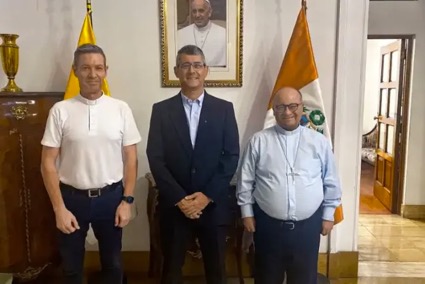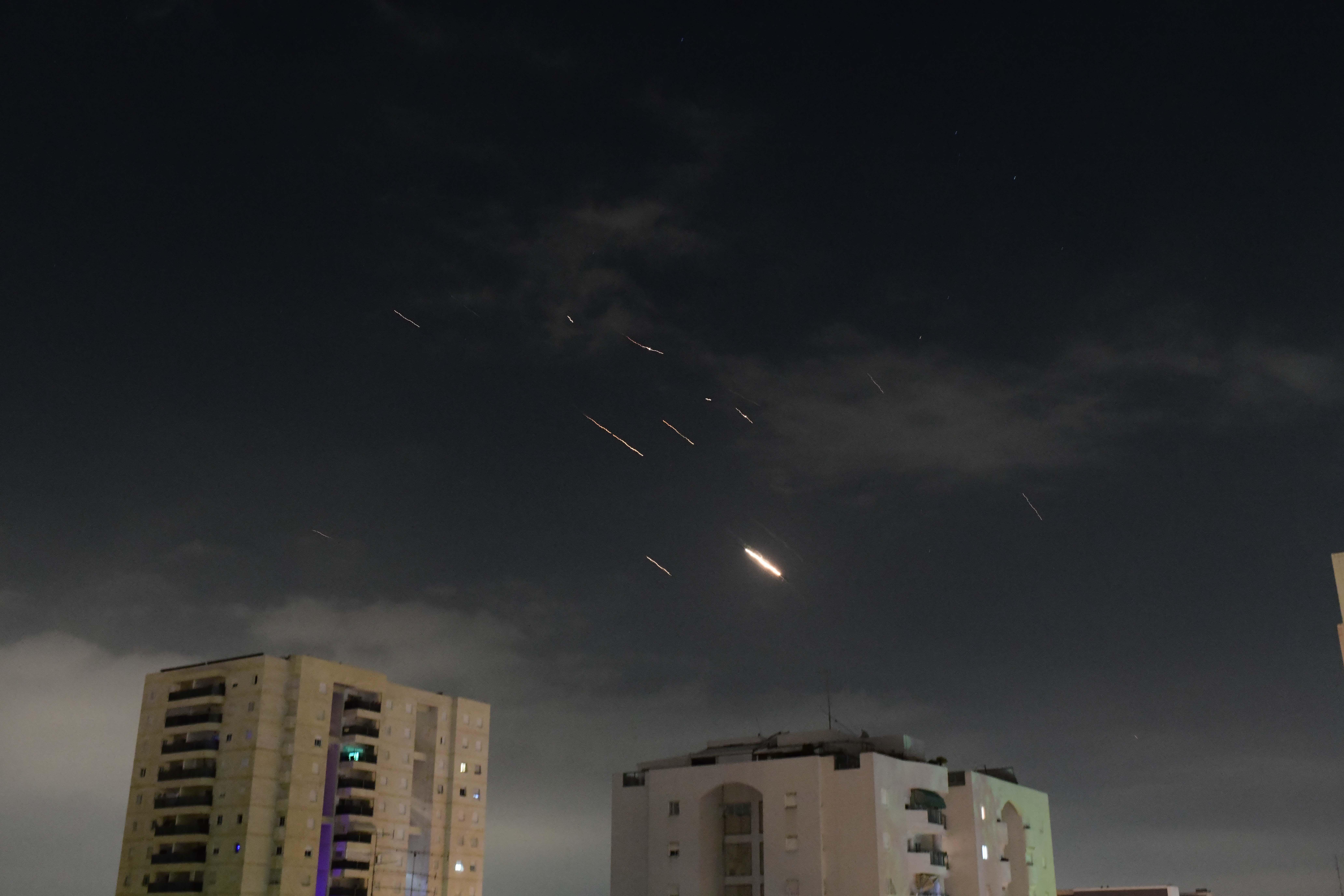Pope Francis has urged regional leaders to avoid further escalations in Middle East conflict and has called on all nations to “take the side of peace”.
After the Sunday Angelus, he said: “I make a heartfelt appeal for a halt to any action that might fuel a spiral of violence, with the risk of dragging the Middle East into an even greater conflict.” Francis suggested a two-state solution for Israelis and Palestinians.
In a message a few days earlier to Muslims marking the end of Ramadan, Francis shared his distress at the ongoing war in the Holy Land and violence in Syria, Lebanon and throughout the region, reiterating his belief that “war is always and only a failure: a road leading nowhere”.
He repeated his appeal for an immediate ceasefire in Gaza: “May aid be allowed to reach the Palestinian people who are suffering greatly, and may the hostages taken in October be released!” He added: “Let us not allow the flames of resentment to spread, fanned by the baleful winds of the arms race! Let us not allow war to spread!”
The World Council of Churches (WCC) general secretary, Dr Jerry Pillay, also expressed grave concern at the confrontation between Iran and Israel.
“We call on all governments and politicians concerned to serve the interests of peace, people, and planet instead of pride and retaliation,” he said. “The prevention of further escalation of violence in the region should be a matter of priority for all concerned.”
The WCC called on the US and other states with influence in the region to “use their positions to foster dialogue and encourage solutions that respect the rights and dignity of all people involved”. It urged the United Nations to “resume its role in convening and facilitating peaceful negotiations between all parties involved”.
On Monday, the UN Secretary General António Guterres warned that “neither the region nor the world can afford another war”.
The Middle East faced a deepening crisis after Iran launched dozens of missiles and drones from its territory toward Israel on Saturday. The Israel Defence Forces (IDF) said “99 per cent” were intercepted by Israel and its “partners”. The attack was expected in retaliation for an IDF strike on an Iranian diplomatic complex in Syria earlier this month.
More than 250 humanitarian and human rights organisations from across the world have called for a halt to the transfer of weapons, parts, and ammunition to Israel and Palestinian armed groups while there is risk they are used to commit serious violations of international humanitarian or human rights law.
Pax Christi International and Churches for Middle East Peace were amongst the signatories of the open statement on 11 April urging all UN member states to stop fuelling the crisis.
In Washington, DC on 9 April, Christians for a Free Palestine organised for over 60 Christians from across the US to disrupt lunch at the Senate Cafeteria with banners saying “Congress won’t eat until Gaza eats”. The action aimed to pressure the Senate and staffers to support a permanent ceasefire in Gaza, restore aid to UNRWA, and end military funding for Israel.
Cardinal Timothy Dolan of New York sheltered from the Iranian drone attack during a visit to Jerusalem last weekend. He was in the West Bank to celebrate the 75th anniversary of the Catholic Near East Welfare Association.
He met Christian, Jewish and Muslim leaders, visited Israeli and Palestinian human rights groups and a Palestinian refugee camp in Bethlehem.
Last week, Fr Ibrahim Faltas, Vicar of the Custody of the Holy Land, said the war in Gaza “darkens the future of Christians in the land of Jesus”.
“In the West Bank, Christians, who are mainly dedicated to tourism, do not have jobs due to the lack of pilgrimages,” he reported.
“They see no future for their families and many would like to leave the Holy Land. Also in Israel, Christian communities live and suffer the consequences of war. In the north, in Nazareth and Galilee, they are very close to another war front. However, all Christians in the Holy Land are bearing witness to their faith in an exemplary way.”
In Gaza, residents held Eid prayers last week beside destroyed mosques, such as the Al-Farouq Mosque in Rafah. The war in Gaza has killed more than 33,400 Palestinians and more than 76,000 people have been injured over the past six months.



 Loading ...
Loading ...